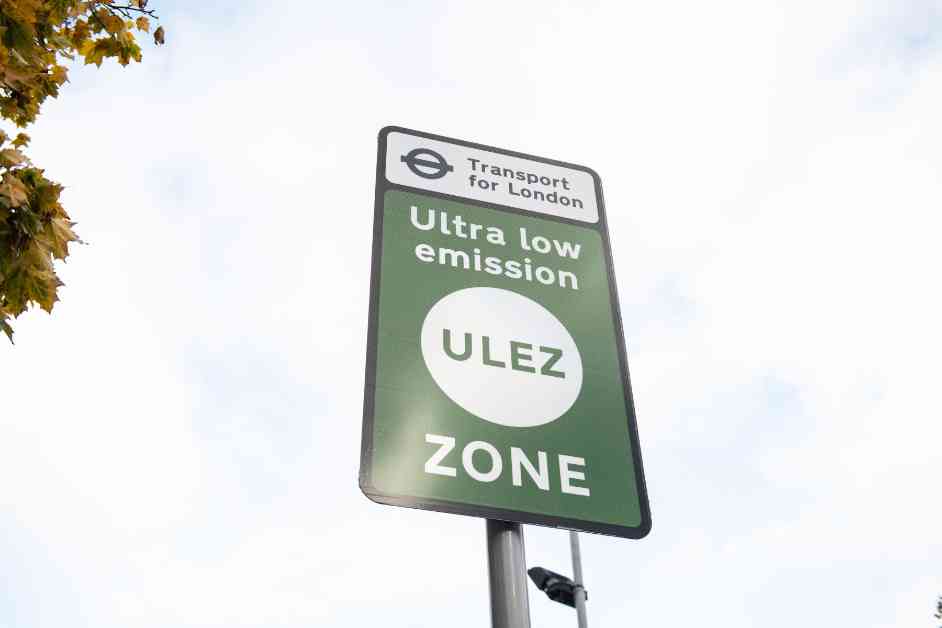TfL’s Revenue from Major Road Fines Surges
Transport for London (TfL) has experienced a significant increase in revenue from fining drivers on major roads in the capital, with figures showing a 57% rise over the past five years. According to a draft version of TfL’s annual report, obtained by the PA news agency, the transport body collected a staggering £89.3 million in fines during the 2023/24 financial year. This marks a substantial increase from the £56.8 million collected in 2018/19.
The surge in revenue has been attributed by motoring organization the AA to the implementation of new and more advanced CCTV cameras, as well as TfL’s decision in January 2022 to raise the value of penalty charge notices (PCNs) from £130 to £160. The AA criticized TfL, accusing the transport authority of turning London’s streets into a cash cow of fines.
Ensuring Safe and Efficient Traffic Flow
In response to the criticism, TfL defended its actions by stating that it is essential for traffic to move safely and efficiently on its network. The authority issues PCNs for violations on red routes, including offenses such as bus lane infringements, stopping and parking violations, and banned turns. These violations are often captured by CCTV cameras installed along the red route network, which spans approximately 367 miles across London.
Despite the substantial income generated from fines, TfL emphasized the importance of compliance with road rules to prevent traffic disruptions, congestion, safety risks, and impacts on air quality. The authority highlighted that PCNs serve as a deterrent to drivers who contravene the rules, with only a small number of drivers receiving multiple fines for repeated offenses.
Controversies Surrounding Fines and Appeals
However, controversies have arisen regarding the handling of fines and appeals by TfL. In May 2023, a panel of adjudicators advised TfL to cease issuing fines based on camera evidence that identified drivers illegally stopping on red routes without single or double lines, as this contradicted government guidelines. Although a judicial review ruled in TfL’s favor in November, research conducted by the AA revealed that the authority does not contest the majority of appeals from drivers fined for stopping on red routes.
Jack Cousens, head of roads policy at the AA, expressed concerns over the process, stating that drivers are often forced to appeal fines despite valid reasons for contesting them. He criticized TfL for banking on drivers’ tendencies to pay fines within 14 days to receive a reduced rate, even if they harbor doubts about the validity of the fines. PCNs are reduced to £80 if paid within a fortnight, prompting drivers to opt for this option to minimize their losses.
TfL’s director of security, policing, and enforcement, Siwan Hayward, maintained that the authority handles representations and appeals fairly and in accordance with regulations. She noted that claims at the appeals stage are sometimes uncontested by TfL due to additional evidence provided to the tribunal that was not initially presented to the authority. Hayward reiterated that PCNs are intended as a deterrent rather than a revenue-generating tool, emphasizing the importance of compliance with road regulations.
Nationwide Trend in Road Traffic Enforcement
The increase in revenue from bus lane enforcement across English councils outside London further underscores the trend of authorities nationwide turning road traffic enforcement into a vital income stream. From £46.8 million in 2022/23, the revenue from bus lane enforcement rose to £54 million in the following year, indicating a growing reliance on fines as a source of income for local councils.
As the debate surrounding the use of fines for road traffic enforcement continues, it remains essential for authorities to strike a balance between ensuring compliance with road rules and maintaining fair and transparent processes for appealing fines. With the increasing reliance on fines as a revenue stream, the need for accountability and fairness in the enforcement of penalties becomes even more critical to uphold public trust and confidence in the transport system.












